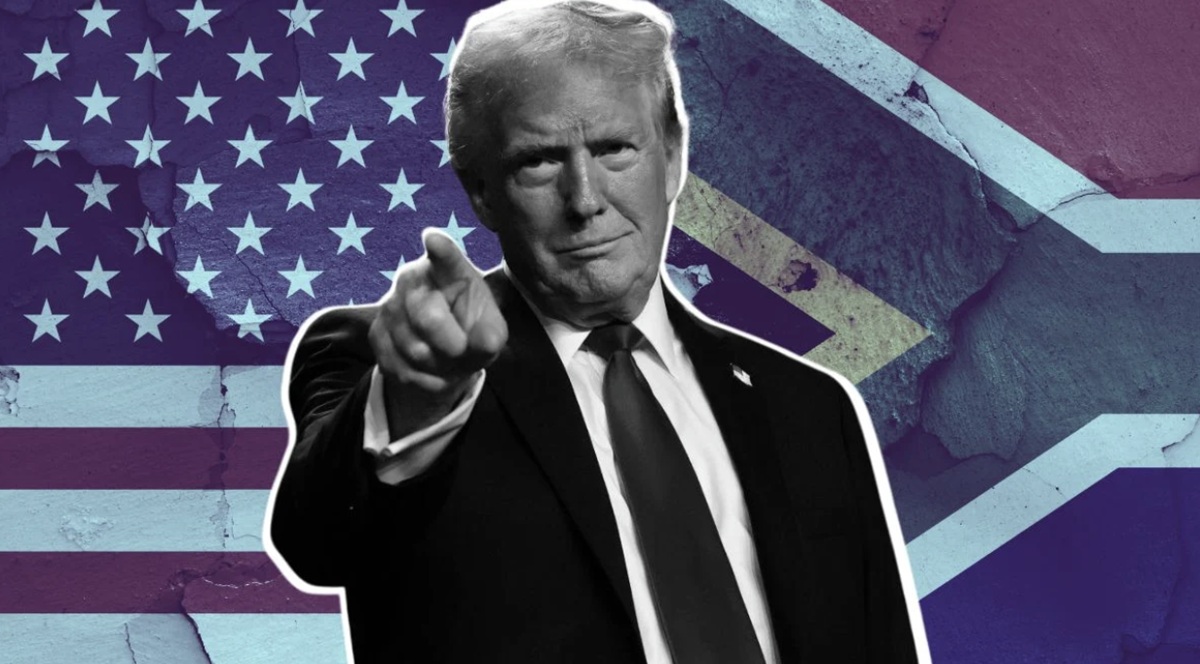Published
4 months agoon
By
James
In a bold move that could reshape global trade dynamics, former US President Donald Trump has reignited his campaign for “fairer” trade terms, this time taking aim at countries that impose Value-Added Tax (VAT) on imports. South Africa, along with several other nations, finds itself in the crosshairs of this latest policy shift.
On February 17, 2025, Trump announced via his social media platforms that the US would adopt a tit-for-tat approach to trade, mirroring the VAT rates imposed by other countries on American goods. “If a country charges the United States a certain rate, we will charge them the same—no more, no less,” he declared. Trump criticized VAT systems, calling them more punitive than traditional tariffs and vowing to treat them as equivalent to tariffs under US policy.
VAT, a consumption tax applied at each stage of production and distribution, is a critical revenue generator for many governments, including South Africa. The country increased its VAT rate to 15% in 2018, and rumors of a further hike in 2025 have sparked concern. Under Trump’s new directive, South African exports to the US could face an additional 15% tariff, compounding existing trade pressures.
Trump’s announcement is part of a broader strategy to address what he perceives as unfair trade practices disadvantaging the US. Earlier in February, he threatened to impose 25% tariffs on Canada and Mexico, though these were temporarily delayed. His administration has also targeted China and the European Union, accusing them of exploiting the US through subsidies and trade barriers.
“For decades, the US has been taken advantage of by both allies and adversaries,” Trump stated. “This new system will restore fairness and prosperity, creating a level playing field for American workers.” He also pledged to address non-monetary trade barriers and subsidies that he claims hinder US businesses from competing globally.
This policy shift raises significant concerns for South Africa, particularly regarding its participation in the African Growth and Opportunity Act (AGOA). AGOA, which grants eligible African countries tariff-free access to US markets, is set to expire in September 2025. South Africa’s inclusion in the program has long been contentious due to its status as a middle- to upper-income economy and its foreign policy alignments with nations like Iran, Russia, and China.
Economists warn that losing AGOA benefits could severely impact South Africa’s economy, making its exports less competitive in the US market. The potential imposition of additional tariffs would further strain trade relations, which are already under pressure.
The Role of Import VAT in South Africa’s Economy
In the 2023/24 fiscal year, the South African Revenue Service (SARS) collected R263.2 billion in import VAT, accounting for 15.2% of total tax revenue. Key contributors to this figure include machinery, electronics, chemical products, and vehicles. However, only 11.1% of South Africa’s import tax revenue comes from the Americas, with the majority originating from Asia (52%) and Europe (30.5%).
China and Germany remain South Africa’s largest suppliers of taxable goods, contributing R98.5 billion and R30.3 billion, respectively. The US, while significant, accounts for just 7.6% of total import tax revenue, contributing R25.4 billion.
As Trump’s policies unfold, South Africa faces a precarious balancing act. The nation must navigate the complexities of global trade while addressing domestic economic challenges. The potential loss of AGOA benefits and the imposition of new tariffs could have far-reaching consequences, not only for trade but also for the broader economy.
In this evolving landscape, South Africa’s ability to adapt and negotiate will be crucial. The coming months will test the resilience of its trade policies and its capacity to maintain strong international partnerships in the face of mounting pressures.
New chat


The Richest Person in Bavaria: Susanne Klatten’s Secluded Life


Meghan Markle Launches Online Fashion Shop for Fans


Bulgarian Consumers Boycott Supermarkets Over Rising Food Prices


Steve Wozniak Criticizes Tesla: “Nothing Makes Sense in This Car”


Tesla Warns of Potential Trade War, Urges U.S. Government to Reconsider Tariffs
BMW’s Power Shift The Man Who Might Lead the Future


Trump’s Rift with Europe: China Senses Its Opportunity










